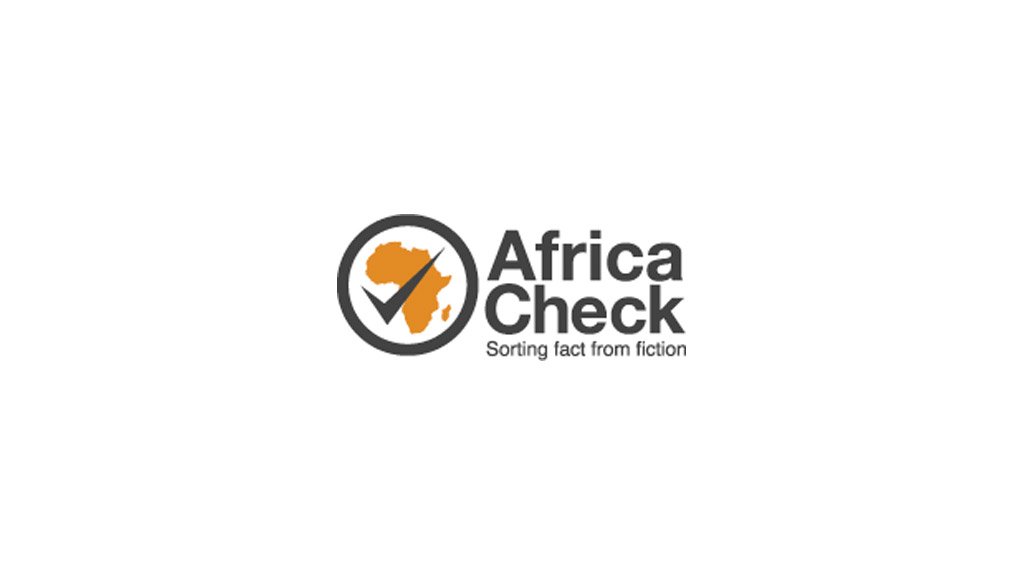Nigerian daily newspaper the Nation reported on sobering national unemployment figures in end-March 2023, attributing them to the country’s labour and productivity minister, Dr Chris Ngige.
According to the cabinet minister, the “unemployment rate in the country has more than quadrupled since the economy slipped into recession, first in 2015 and later in 2020”.
Ngige, who was speaking at a ministerial briefing, gave more details: “The unemployment rate in Nigeria rose to 9.9 per cent in 2015 as the administration came on board.”
The governing All Progressives Congress (APC) first took office in 2015, before being re-elected in 2019 and 2023.
But is Ngige right about unemployment trends in Africa’s largest and most populous economy? We took a look.
Claim: “The unemployment rate in the country has more than quadrupled since the economy slipped into recession, first in 2015 and later in 2020.”
Verdict: Incorrect
Africa Check contacted the minister's office to confirm whether he had been quoted accurately and to ask for proof of his claim. We will update this report when we receive their response.
The National Bureau of Statistics (NBS) collects data on unemployment in Nigeria. The agency defines the unemployed as all people aged between 15 and 64 who are willing and able to work but are without work during a specified reference period.
The International Monetary Fund (IMF) cautions that while there is no universally accepted definition of recession, the term refers to a sustained period of economic decline during which output falls and unemployment rises.
Nigeria defines a recession as economic decline over two consecutive quarters. In 2016, the country entered its first recession in more than two decades, after the economy contracted by 1.6% due to falling oil prices.
In 2020, the impact of Covid and other factors, such as low risk among investors, lower oil prices and falling remittances, saw the country’s economy shrink by 1.8%, according to the World Bank.
Dr Baba Madu heads the national accounts division at the NBS. He told Africa Check that “when comparing unemployment rates year-by-year, one should focus on the final quarter”.
In March 2016, the bureau published its unemployment report for the last quarter of 2015. A total of 76.96 million people were estimated to be in full-time employment during this period, or working at least 40 hours a week.
It gave an overall unemployment rate of 10.4%.
The underemployment rate, which is the percentage of people who work for less than 20 hours a week or engage in low skilled work , stood at 18.7% (14.42-million people) in that quarter.
More recent data unavailable but unemployment tripled between 2015 and 2020
Nigeria’s most recent unemployment data is for the final quarter of 2020, covering October to December. A total of 30.6-million people were estimated to be in full-time employment during this period.
Unemployment in the country stood at 33.3%, having risen from 27.1% recorded in the second quarter of 2020.
In absolute terms, the number of unemployed people aged 15 to 64 had risen to an estimated 23.2-million, while the number of underemployed was around 15.9-million (21.8%).
More men – 12.6-million – were unemployed compared to women – 10.6-million.
Taken together, this meant that 56.1% of the working population was either underemployed or unemployed.
Comparing the total unemployment rate in the last quarter of 2015 (10.4%) with the total unemployment rate in the last quarter of 2020 (33.3%) showed that the unemployment rate had tripled, not quadrupled.
Madu agreed: “Interpreting NBS data for 2015 and 2020, we would say unemployment has tripled, it moved from 10.4 to 33.3%.”
The agency would release new unemployment data “soonest”, he said.
Because the agency’s last data was published in 2020, the unemployment rate could be higher, Leo Sanni, a statistical information officer at the data agency, told Africa Check.
“Indeed, the number of unemployed persons in Nigeria has increased due to the number of graduates that come out from schools without a job,” he said.
For now, the most reliable publicly available data, even if outdated, does not support Ngige’s claim.
Claim: “The unemployment rate in Nigeria rose to 9.9 per cent in 2015 as the administration came on board.”
Verdict: Correct
Buhari was first sworn in as president on 29 May 2015. In 2014, the bureau changed the way it counted unemployment. People working less than 20 hours per week were now counted as unemployed, and those working between 20 and 39 hours as underemployed.
Previously the threshold for “unemployment” had been 40 hours.
Prior to 2014 unemployment had been more than 20%. For example data from the NBS showed the rate was 21.1% in 2010 and 23.9% in 2011.
The new categorisation also meant that people who chose to stay at home, were full-time students or were ill and unable to work were not counted as unemployed.
At least half of the respondents in a given quarter are interviewed again in the following quarter to track employment trends.
Following the changes, the unemployment rate fell to 7.5% in the first quarter of 2015, before rising to 8.2% in the second quarter.
In the third quarter of 2015, the rate increased to 9.9%.
Ngige’s claim is correct as Buhari came to power in the second quarter of that year.
Written by Motunrayo Joel, Nigeria deputy editor/health researcher, Africa Check
EMAIL THIS ARTICLE SAVE THIS ARTICLE
To subscribe email subscriptions@creamermedia.co.za or click here
To advertise email advertising@creamermedia.co.za or click here











